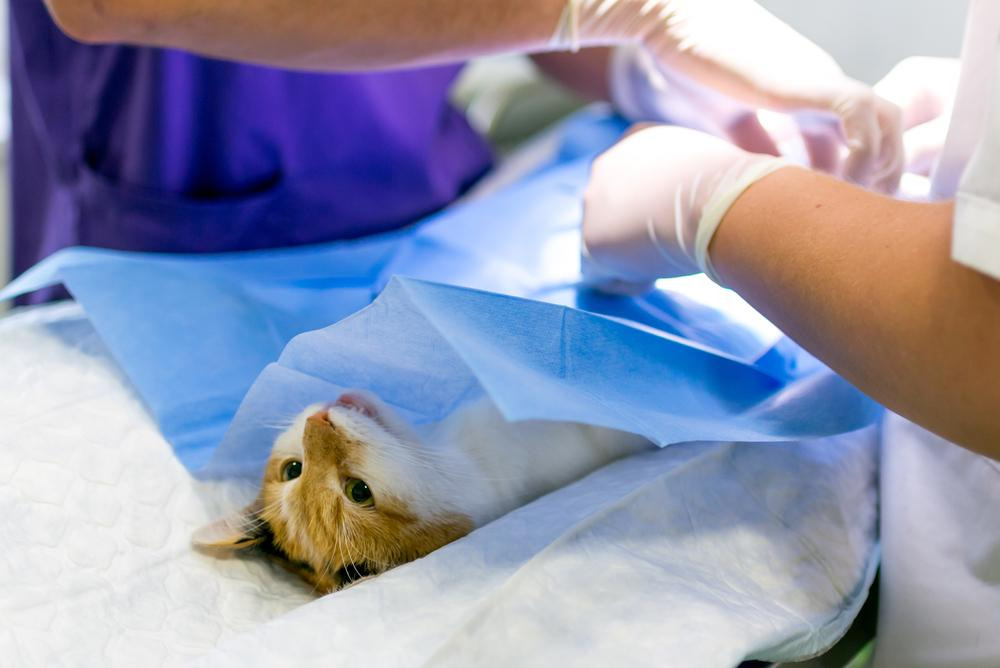Neutering is an essential step of proper pet care. The procedure doesn’t merely control the population; it equates to a healthier and longer life for your pet. Studies show that neutering protects against reproductive cancer and reduces behavioral issues.

However, being a pet parent, it is nerve-wracking to watch your furry friend going under the knife. Several questions pop into your anxious mind; will the process hurt him? How long will my dog take to recover? Will my cat’s personality change after being neutered?
Therefore, it is essential to know what to expect and how to care for your pooch after the neutering procedure. Here are some valuable tips to help your pet get through the road to recovery.
Tips for Post-Operative Care
Taking the reproductive ability of your pet away is not always optional. Sometimes there are signs your dog needs to be neutered, such as behavioral issues.
Whatever the reason behind this operation, you must ensure the process goes smoothly and follow proper pet care afterward for a successful recovery.
- Limit their Physical Activity
Though it would be difficult to control these energy balls, you must reduce their movement during the first eight to ten days of their recovery period. Strenuous activities, such as running, jumping, and playing, can disrupt their healing process and can open their incision, leading to swelling.
- Limit their physical activity
- Keep them in a carrier, kennel, or crate
- Carry your small pet up or downstairs
- Get them on a leash before letting them defecate or urinate
- Do not let them play with other pets
While limiting their physical activity, you have to keep them safe and comfortable. Try to keep them in a quiet place, such as the laundry room or bathroom and supervise their healing process.
- Don’t Alter their Routine Diet
Your pet’s appetite will return to normal within 24 hours after surgery. Do not change their diet during this time, as it can hide post-surgery complications.
Give them half-size meals after bringing them home, and then feed them a routine evening diet. Kittens and puppies should have an extra meal throughout the day. Moreover, you should not feed your pet with table scrap, junk food, or any human food.
- Prevent Incision from Licking
The incision may cause irritation and your pet would try to lick the incision site. To avoid this from happening, ask your vet to place an Elizabeth collar or an inflatable collar on your pooch. These safety accessories have a high success rate.
E-collars, on the other hand, are irritating and uncomfortable for your dog, so it is only recommended when other options do not work.
Moreover, you can consider a belly wrap or protective clothing to shield the incision. They will also aid in reducing the irritation and the occurrence of biting or licking of wounds.
- Regularly Monitor the Incision
Male cats have two incisions on the sides of the scrotum, while male dogs have one incision on their scrotum. Please check this incision site at least twice a day. In females, there should be no discharge or drainage, and any redness should gradually subside over time.
Along the same line, the swelling should subside gradually, and if there are any bruises or bumps, they should decrease in size during the recovery period.
Moreover, your pet’s wound can get smelly as vets recommend avoiding baths for 14 days to heal the wound correctly. During this time, your pet’s private areas can get smelly but remember that the situation is temporary. However, if your dog exhibits a putrid or yeasty odor, this may be a sign of infection.
- Look for the Complications
Complications can occur with any surgery, and neutering is no different. If swelling and redness do not fade away, you should immediately call the vet and discuss the symptoms. If the following symptoms persist longer, this may be a sign of infection and require immediate attention.
- Loss of appetite
- Pale gums
- Decreased water intake
- Depression
- Vomiting
- Diarrhea
- Bleeding incision
- Difficulty urinating or defecating
- Unsteady gait
- Difficulty in breathing
Moreover, monitor your pet’s urine for blood. Small traces of blood in female pets are normal if observed within the first 24 hours after surgery. However, if this occurs at any other time, this is a sign of post-operative complication and should be addressed immediately.
- Distract your Pet
Another smart way to ensure a speedy recovery is to keep your pet distracted so he would not lick or bite the stitches. To make this happen, let your pet play with toys or invest in puzzle feeders to keep them occupied.
Though not much recommended, you can consider taking your pet for a short leisurely walk. However, you should be cautious when taking them for a walk. Keep your neutered pet on a leash and stop them from running or jumping throughout the healing process.
Moreover, keep neutered males away from in-heat females as they can get their female counterparts pregnant for up to one month after neuter surgery. So ensure your pet does not meet any unsprayed females while on a walk.
- Do not Miss Post-Operative Checks
Whether you witness any infection signs or not, it is recommended to take your pet for post-op checks. Usually, the price of these checks is involved in the price of surgery, so missing them is a no-brainer.
Post-opt checks have many benefits; for instance, there may be any hidden symptoms that you miss during the recovery period or early signs of infection. Moreover, these visits can help build a positive relationship between your pet and the vet after the previous scary visit.
Take Away
Being a responsible pet, you must ensure the neutering procedure goes smoothly and without complications. Therefore, you should take the best possible care of your pet during their struggle for recovery.
From monitoring their incision and ensuring post-op checks to limiting their physical activity and keeping them from interfering with their wound, there is plenty of work on your shoulders.
However, this is only temporary, as your pet will return to regular activities once the healing process is complete. If you experience any sign of infection or complication, you should immediately call the vet to counter any issue arising from the surgery.

